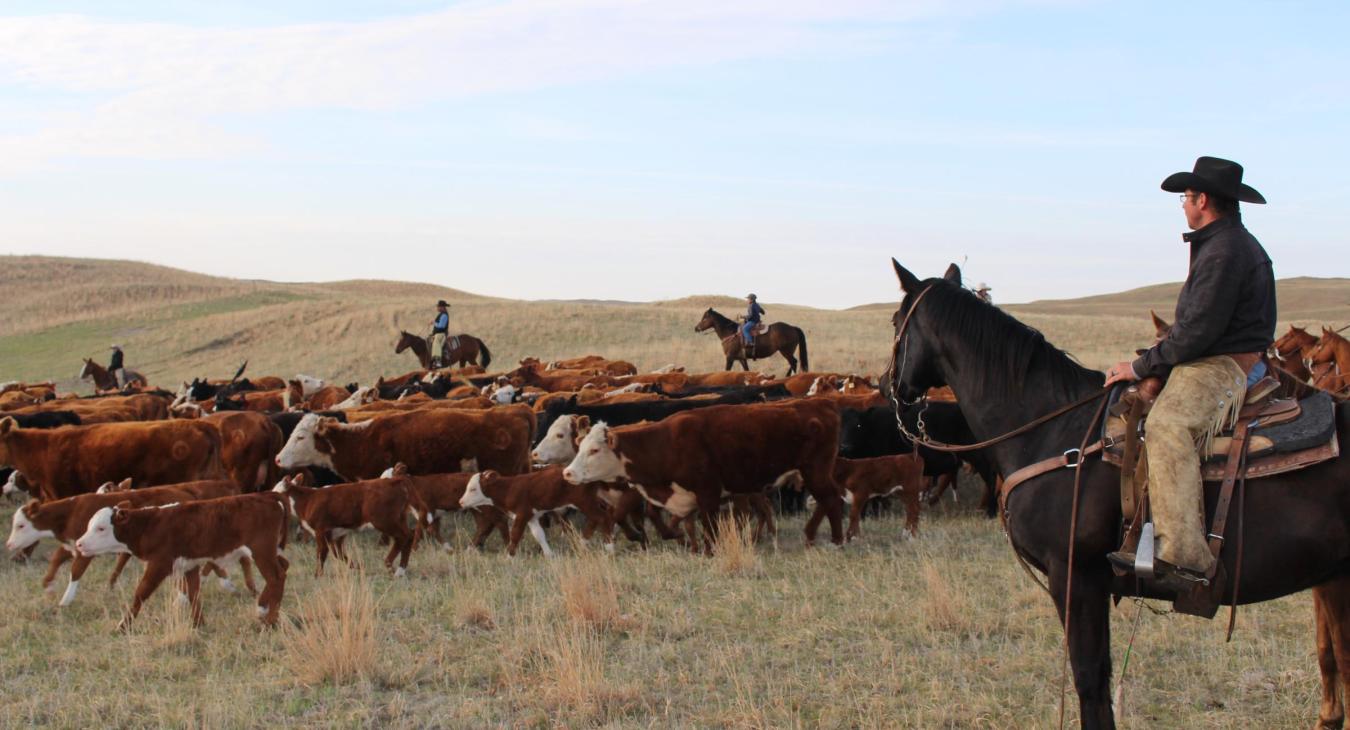By Eric Buck
A Husker research team has received $5 million from the U.S. Department of Agriculture to research more sustainable dairy and beef production.
The research team is composed of University of Nebraska–Lincoln faculty members from the Department of Animal Science and Department of Biological Systems Engineering, along with researchers from the U.S. Meat Animal Research Center in Clay Center, Nebraska. The team will study the interrelationships among animal genetics, the gut microbiome and nutrition, with the ultimate goal of developing tools and management practices that can lower methane emissions from livestock.
The funding, which is through the USDA’s National Institute of Food and Agriculture, is part of the U.S. government's $10 million investment toward projects reducing intestinal methane emissions from ruminant animals. The response aligns with President Joe Biden’s Global Methane Pledge made in September 2021.
The project is led by Paul Kononoff, along with fellow Husker faculty Samodha Fernando, Matt Spangler, Galen Erickson, Jessica Sperber, Richard Stowell and Tammy Brown-Brandl. Additional researchers include James Wells and Bryan Neville from the Meat Animal Research Center.
Ruminant animals such as cattle, sheep and goats have a digestive system containing microbes that break down plant materials and feed byproducts through fermentation. This process supplies vital nutrients to the animal while converting plants and other materials that humans are unable to digest into an important protein source.
However, a byproduct of rumen fermentation is the creation of methane, a greenhouse gas. Cattle may produce between 200 and 500 liters of methane daily. Once produced, methane is then belched into the environment. The volume produced highly depends on an animal’s size and the feed consumed, as well as on its genetics and unique gut microbiome.
“We’re developing a better understanding of the role of animal genetics and gut microbiome on not only methane production, but energy use and feed efficiency,” Kononoff said.
Kononoff and his team will also investigate ways to establish a healthy microbiome in young animals that supports normal growth and production while reducing the amount of methane an individual animal produces.
“This work will ensure that young animals get off to an even better start in life,” he said.
The research results will be used to develop new tools and practices for producers to continue producing food while reducing methane production from the animals that they care for. It will also help producers make better breeding decisions and improve feed efficiency for their animals. These science-based solutions will be delivered to producers through university extension programs, aiding in the profitability and sustainability of family dairy and beef operations.
“This is innovative, high-impact research that is going to point us in a direction where we will have a better understanding of the interconnected factors that impact methane production in cattle and build a more comprehensive understanding of cattle nutrition and performance,” said Derek McLean, dean and director of the Agricultural Research Division at Nebraska.
Ultimately, Kononoff hopes the research improves efficiency and profitability for livestock producers, too.
“Beef and dairy products are some of the most healthy, nutrient-dense and best-tasting foods we can enjoy,” he said. “This research should further support the many sustainable practices that beef and dairy producers currently employ in delivering food to consumers, opening new doors so that this food is produced in a manner that lessens the effect on the climate and Earth we all live on.”

